Our Services
At Hashir International Institute, we help you with assessment and management of your misophonia, tinnitus or hyperacusis via private consultations with our specialists. Our main speciality is cognitive behavioural therapy (CBT) for misophonia, tinnitus and hyperacusis in children and adults.
Assessment
Assessment is conducted by our senior audiologists who are specialists in misophonia, tinnitus, and hyperacusis rehabilitation. They will assess the type and severity of your symptoms, make a diagnosis, and develop a comprehensive treatment plan.
Psychological evaluation
Our clinical psychologists will explore if there are any underlying psychological/psychiatric conditions that might require separate treatment. This is different from the anxiety or stress symptoms related to the experience of tinnitus, hyperacusis, noise sensitivity and misophonia.
Education
In educational sessions, our neuroscientists will discuss the latest scientific understanding about the mechanism of misophonia, tinnitus and hyperacusis and the research studies on treatment methods.
Occupational therapy (OT) evaluation
The aim of our OT sessions is to assess if you or your child have a broader sensory processing disorder, autism spectrum disorder (ASD), attention deficit hyperactivity disorder (ADHD), neurodevelopmental disorders, and/or emotional regulation difficulties in addition to sensitivity to sound and/or tinnitus.
Health psychology evaluation
Our health psychologist will assess if there are any improvements and behaviour changes that you can achieve to cope well with misophonia, tinnitus and hyperacusis, and talk to you about how to maintain your physical and psychological health throughout the treatment process. Our health psychologists will help you to feel more confident and develop a more realistic belief about your misophonia, tinnitus and hyperacusis and its long-term management.
Cognitive behavioural therapy (CBT)
We are one of the few institutes in the world that offer an evidence-based specialised rehabilitation programme based on cognitive behavioural therapy (CBT) for management of misophonia, tinnitus and hyperacusis for children and adults. Our premier therapy package comprises 14 one-to-one sessions via video calls.
Multidisciplinary care
Depending on the outcome of the assessment we will formulate a treatment programme that can address issues specific to tinnitus/hyperacusis/misophonia and/or broader underlying psychological/sensory processing factors. For people experiencing comorbid psychological and/or sensory processing disorders, additional psychological and OT input will be provided throughout the treatment.
Patient support sessions
Between your main CBT sessions, you will have access to our dedicated patient support officers who will help you to practice and master the CBT techniques that you learn from your CBT sessions for managing misophonia, tinnitus and hyperacusis.
Comprehensive clinical reports
We provide comprehensive assessment report and treatment progress report summarising our findings, your diagnosis, and the treatment approach.
Research and training
At Hashir International Institute, we conduct multidisciplinary research to assess, treat, and prevent misophonia, tinnitus and hyperacusis. For healthcare professionals, we provide training courses, workshops, and masterclasses. We are a member of The CPD Certification Service in the UK.
We are an independent research institute and UK- wide specialist clinic based in Guildford and London. The main aim of our private clinics is to deliver specialist care for adults and children who experience distressing misophonia, tinnitus and hyperacusis from anywhere in the world. After a decade of research, we have developed our premier therapy package which comprises targeted cognitive behavioural therapy (CBT) for misophonia, tinnitus and hyperacusis combined with consultations with a multi-disciplinary team of audiologists, psychologists, occupational therapists, and neuroscientists.
Research on our premier therapy package has shown very good results in helping patients to manage their symptoms and significantly improve their quality of life.

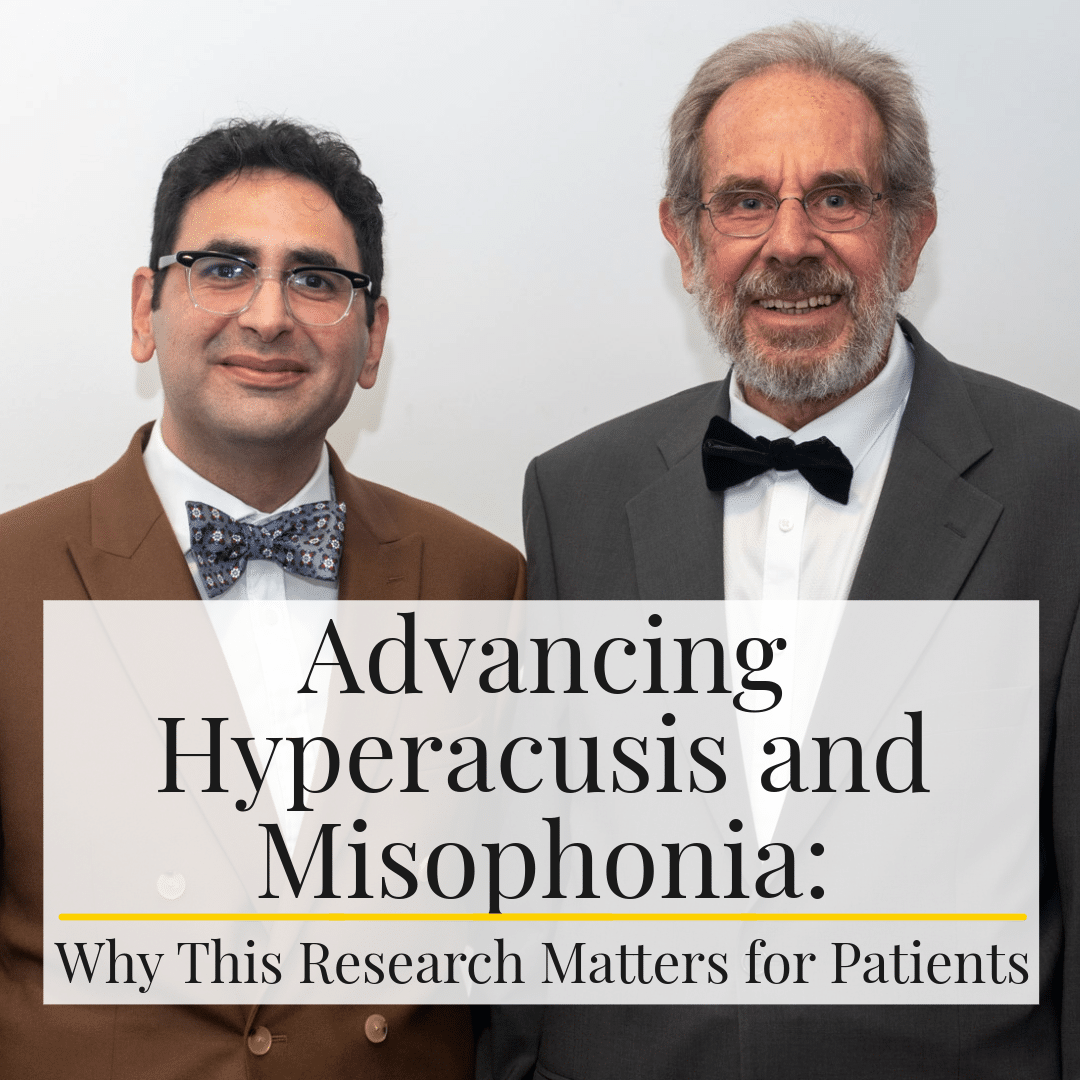
Hyperacusis and misophonia have long been misunderstood, under-recognised, and difficult to treat. Many people living with these conditions describe years of uncertainty, limited access to specialist care, and a lack of clear explanations. A recent...
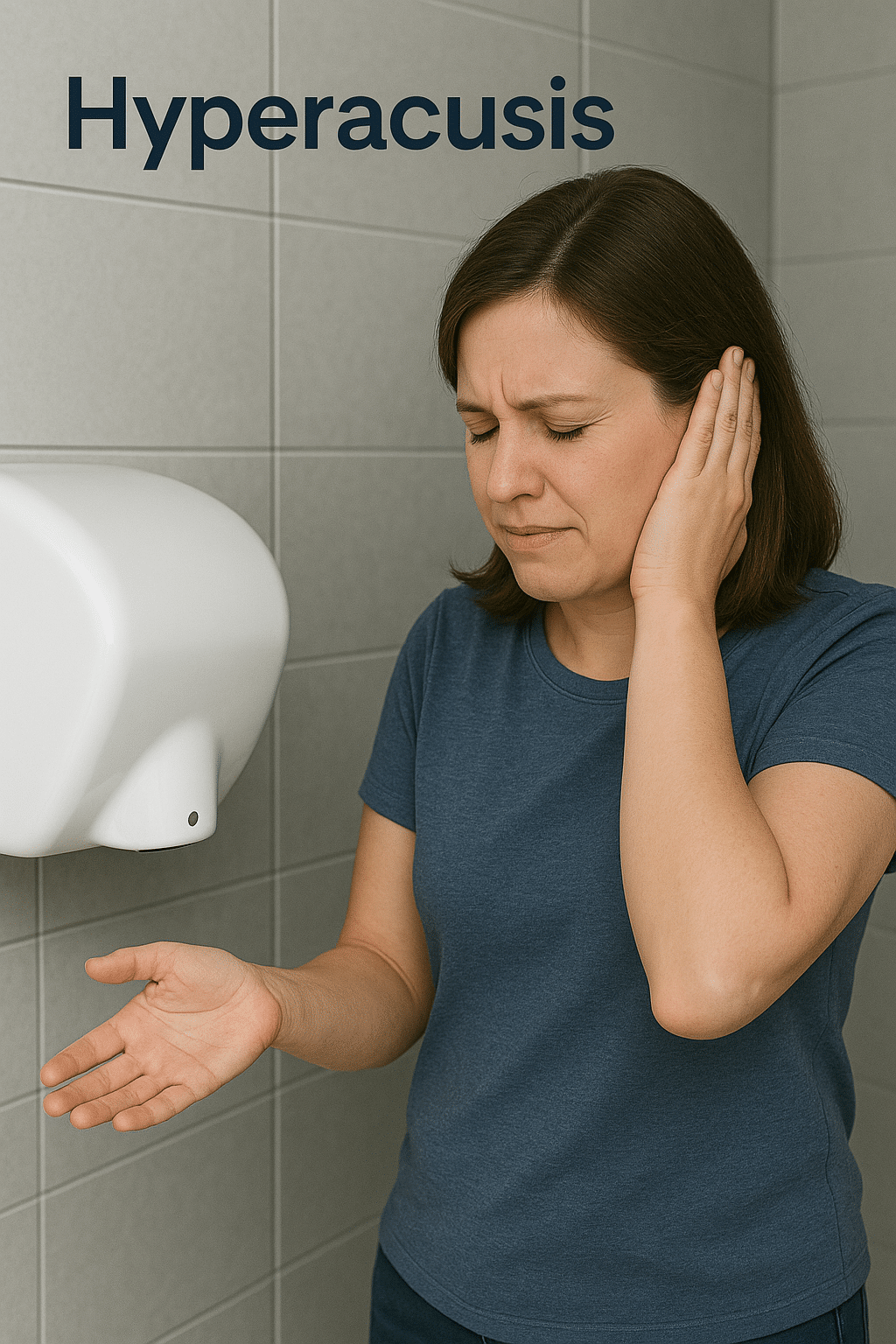
A new study published in Hearing Research has questioned one of the leading hypotheses about the biological basis of misophonia and hyperacusis—showing that decreased sound tolerance may not be driven by abnormal levels of brain excitatory or...
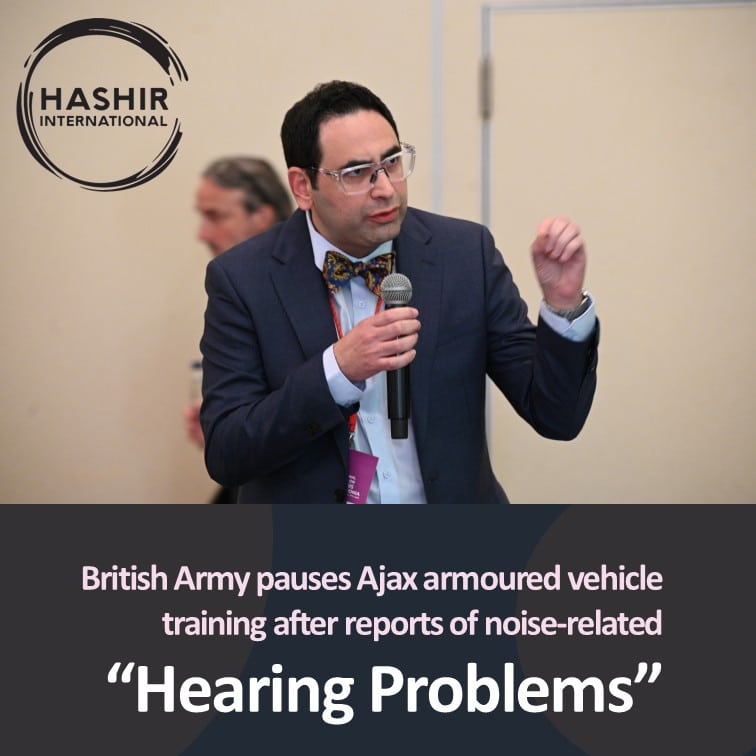
The British Army has temporarily paused training involving the Ajax armoured fighting vehicle following reports that a number of soldiers became unwell during a recent exercise. Reports describe symptoms such as nausea, vomiting, tingling...
Our director, Dr Hashir Aazh, is a pioneer in audiologist-delivered CBT for managing misophonia, tinnitus and hyperacusis. Dr Aazh is recognised as the number one expert in hyperacusis in Europe (2 nd in the world) during the years 2013-2023 from an independent ranking of biomedical experts (click here to view source ).
Dr Hashir Aazh, Associate Professor of Audiology, in collaboration with our global network of scientists, is leading research on topics related to social cognition and brain activities in misophonia, effect of sleep disturbances on tinnitus, cognition, mood and hyperacusis, and machine learning and AI for differential diagnosis of misophonia and hyperacusis. We also offer specialist training courses, ethical review of the research proposals, research design, research sponsorship, and supervising MSc and PhD students.
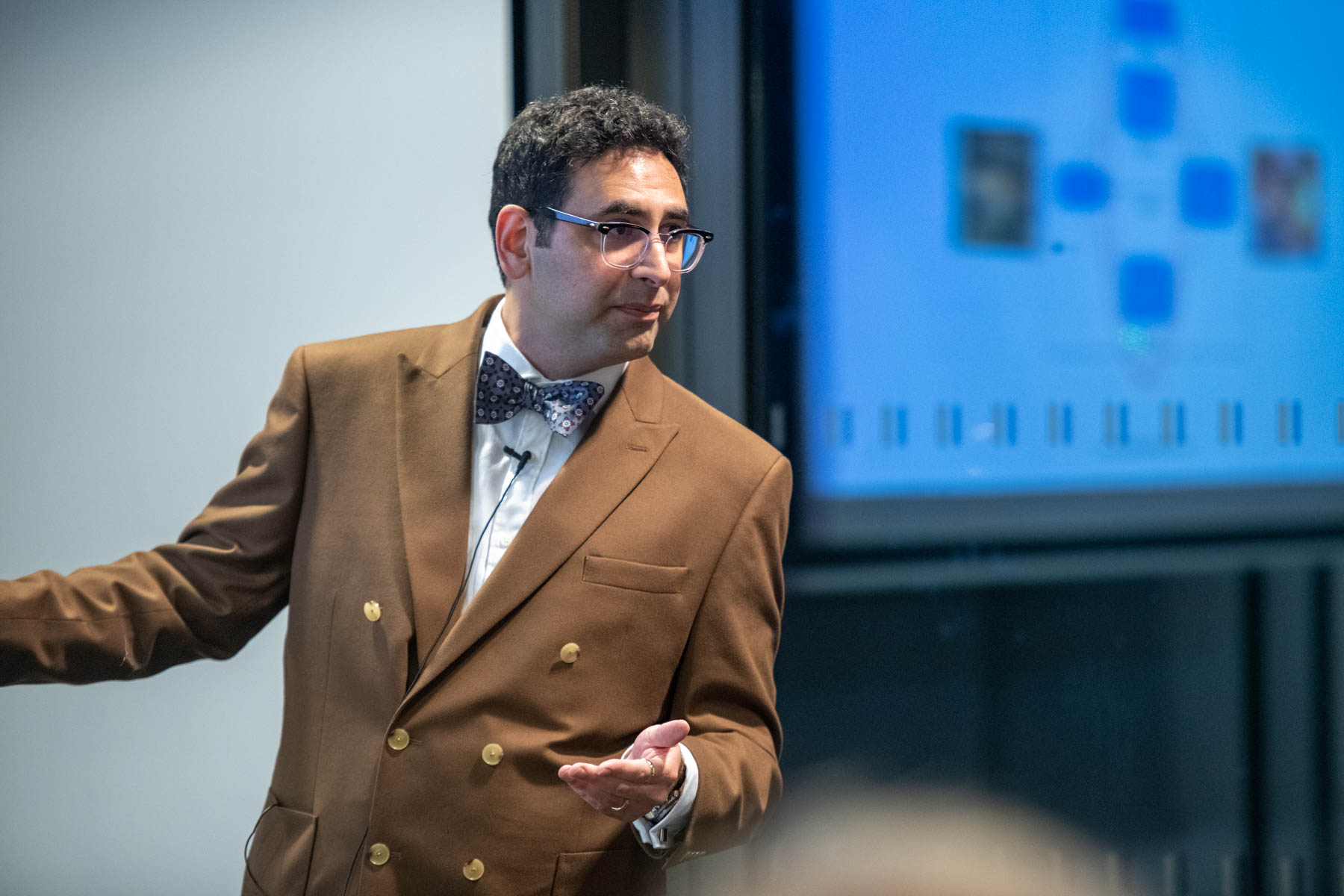
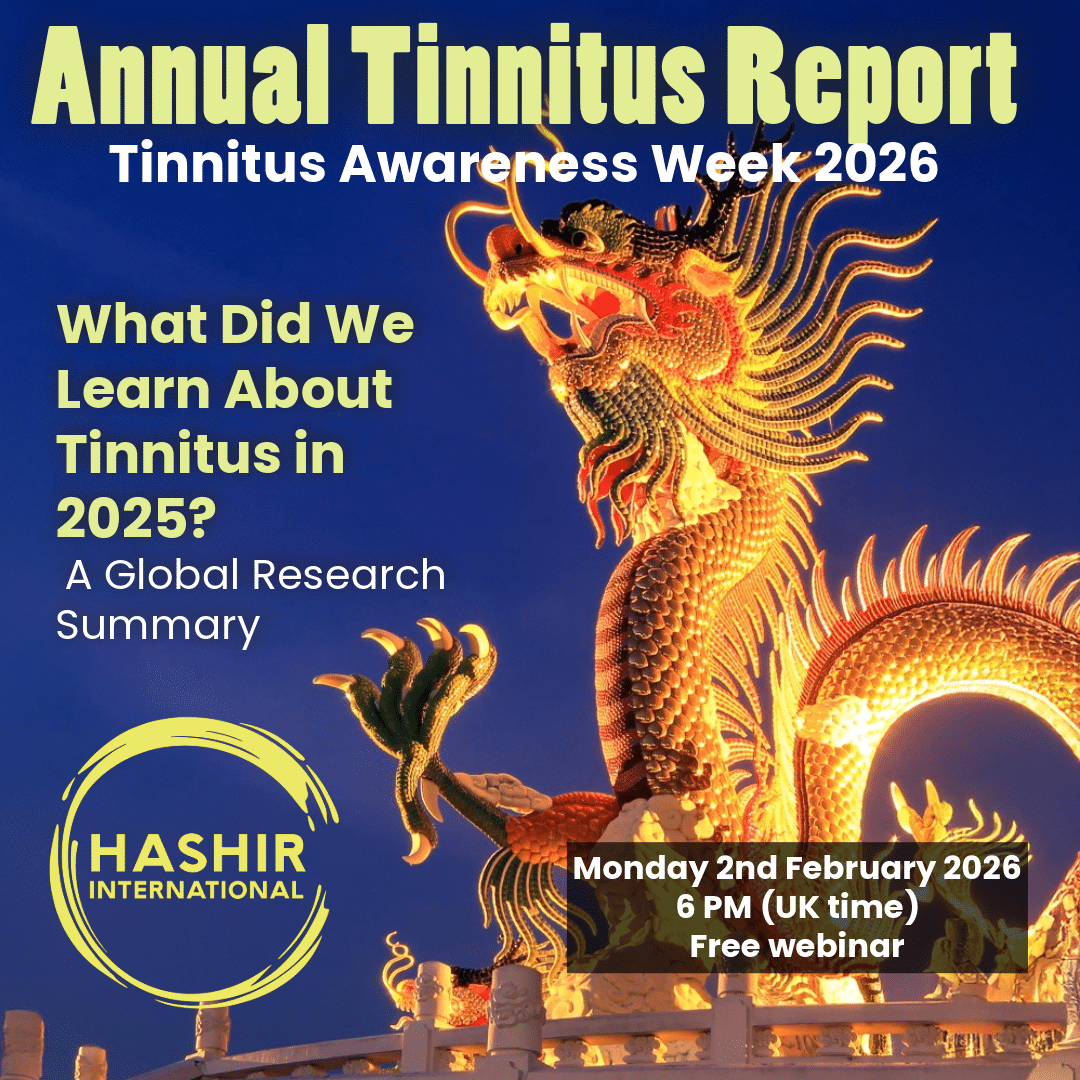
Tinnitus Week 2026: Lessons from the Last 12 Months brings together an international group of clinicians and researchers, including audiologists, ENT specialists, psychologists, and senior researchers from different countries, all actively...
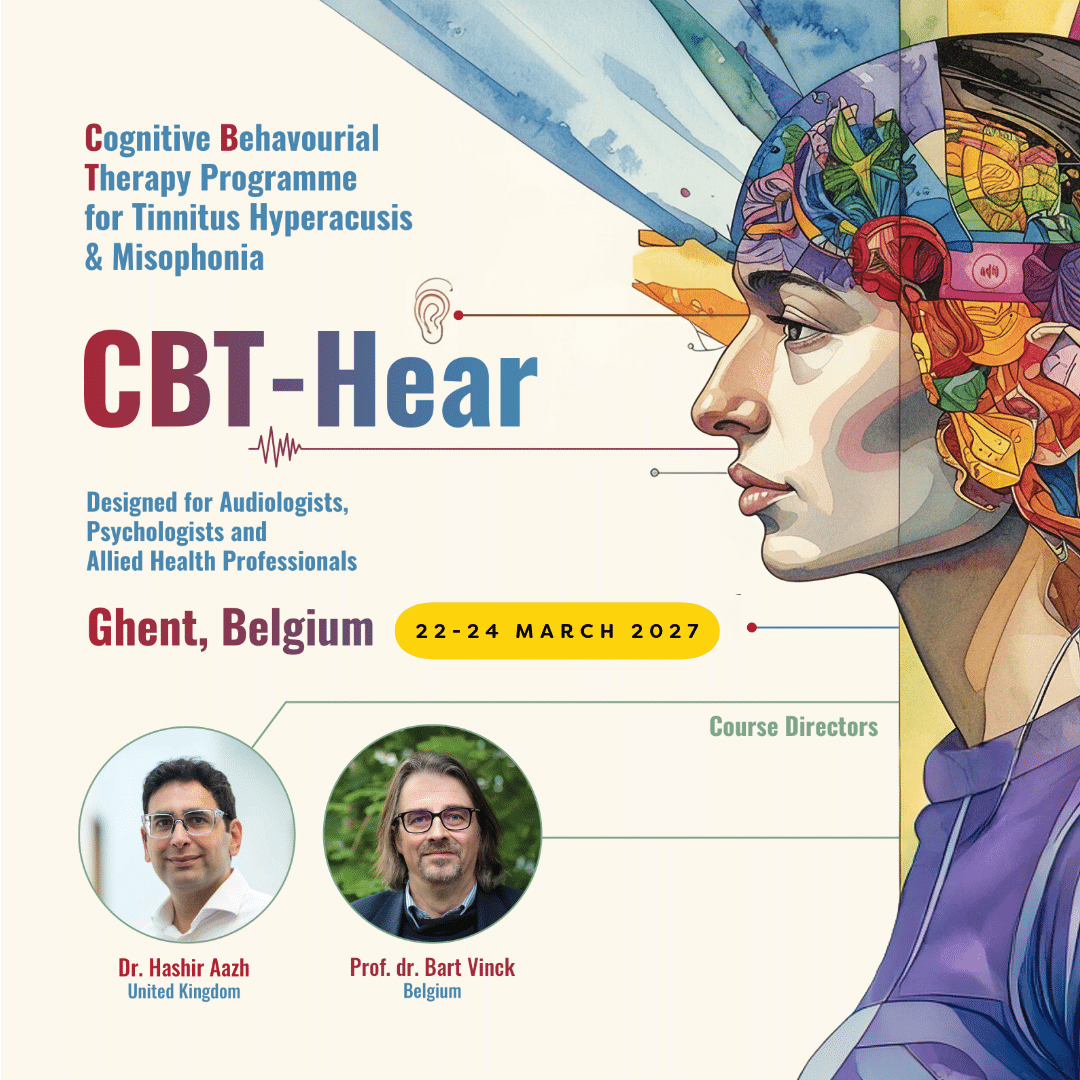
CBT for Hearing Disorders: Foundations Stage 1 of the CBT-Hear Certified programme provides a comprehensive introduction to the cognitive-behavioural foundations of tinnitus, hyperacusis, and misophonia care. This three-day in-person masterclass,...

Free Webinar Announced for Audiologists Upcoming Global Conferences & Training Opportunities (2026–2027) Date: Wednesday, 21 January 2026 Time: 10:00 AM UK 1:00 PM Istanbul 12:00 PM Cape Town 3:30 PM Delhi 6:00 PM Perth & Shanghai 7:00...

Free Webinar Announced for Audiologists: Upcoming Global Conferences & Training Opportunities (2025–2027) Date of Webinar: Wednesday, 10 December 2025Time: 6:00 PM (UK time)Format: Online Webinar — Free to AttendAudience: Audiologists and...
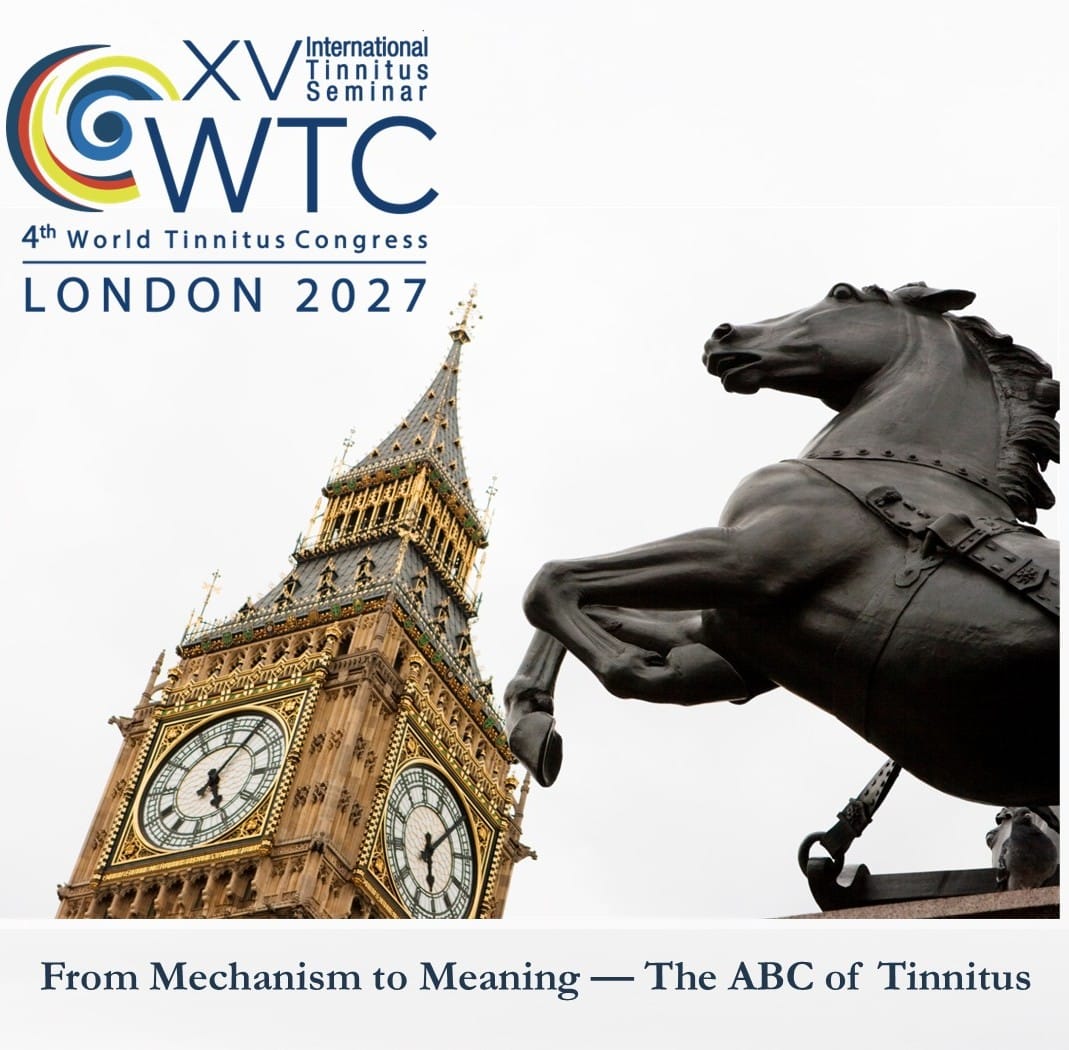
Welcome to the 4th World Tinnitus Congress and XV International Tinnitus SeminarTheme: From Mechanism to Meaning — The ABC of Tinnitus Proudly hosted by the Hashir International Institute, you’re warmly invited to join us in London from 30 June...

Free Educational Webinar The Hashir International Institute, in collaboration with ON-GEHOORD, is pleased to announce a free international webinar exploring the next two years of professional, clinical, and research opportunities in tinnitus,...
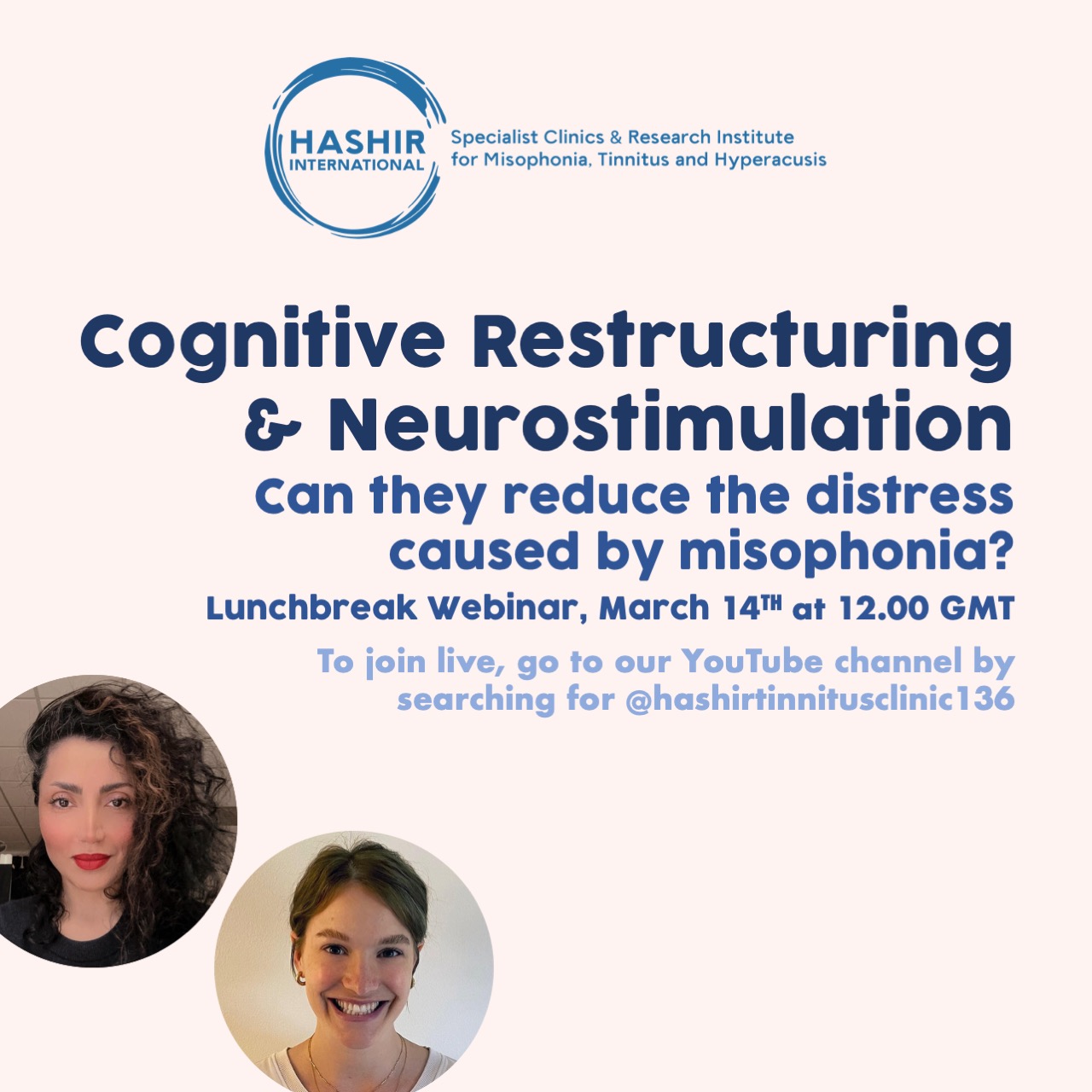
A recent study conducted by scientists at Duke University delves into the distinctions between misophonia, and general difficulties in emotional management. Their research uses cognitive restructuring and neurostimulation techniques to...
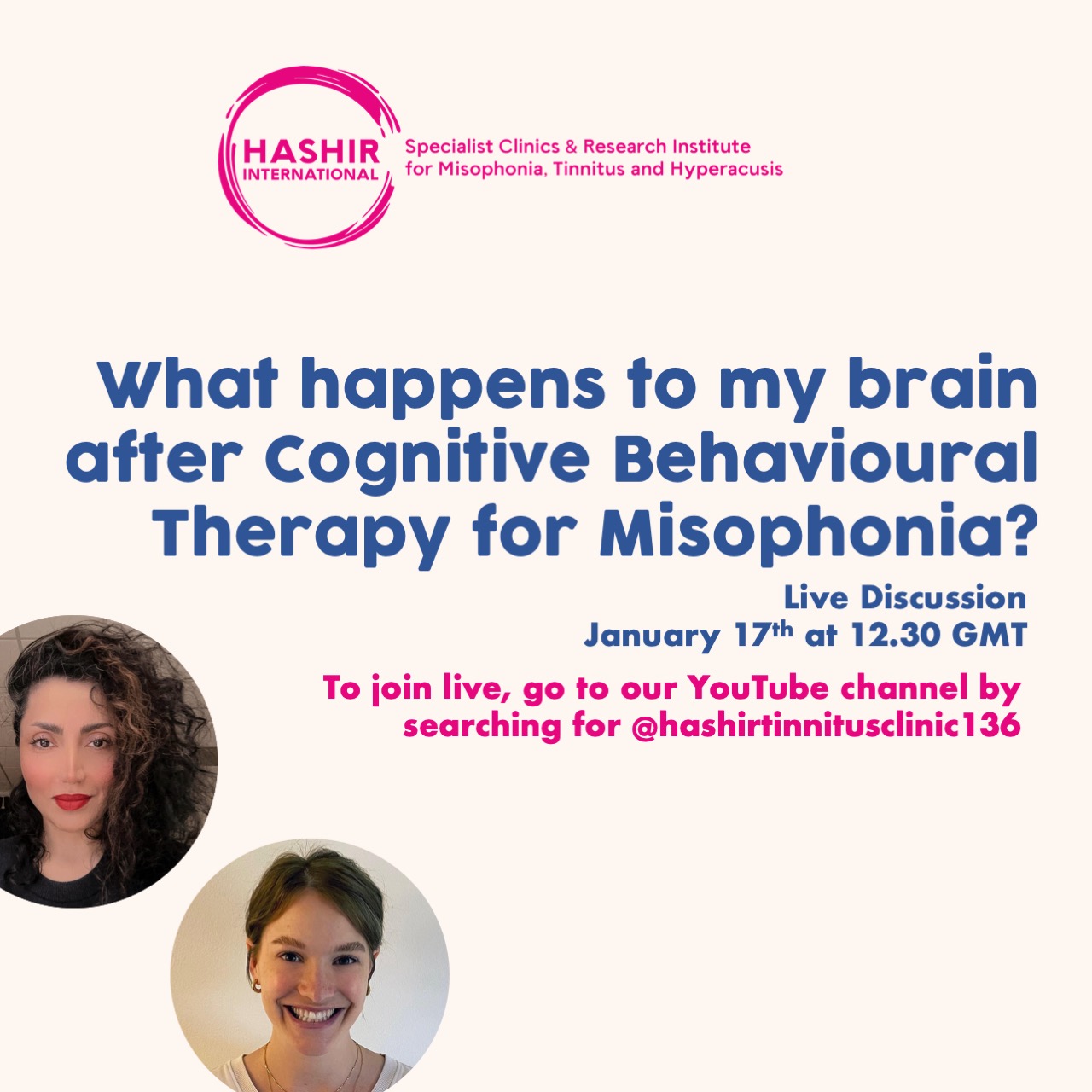
Ever wondered about the impact of Cognitive Behavioral Therapy (CBT) on your brain’s response to trigger noises, if you have Misophonia? Watch this YouTube series as we delve into this intriguing subject. Our session will feature...
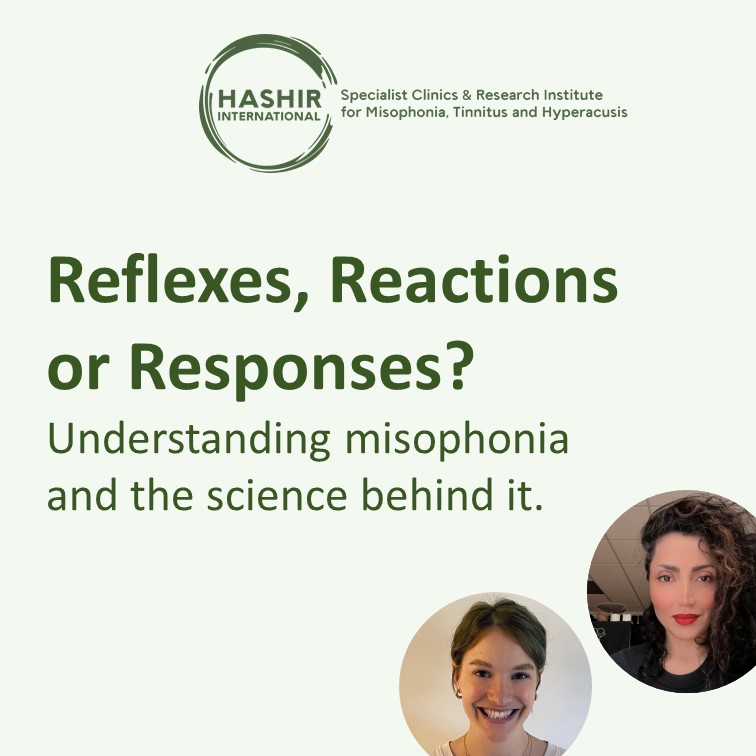
Have you ever questioned if it is possible to control our responses to certain noises? Perhaps you have made a sound which has created an extreme reaction in a loved one and wondered why? For people with Misophonia, it can feel completely...

Hyperacusis is the perception of certain everyday sounds, such as domestic noise or noise in public places, as too loud or painful in such a way that it causes significant distress and impairment in social, occupational, recreational, and other...

Tinnitus is the perception of sound (e.g., ringing, buzzing, whistle, humming, clicks, etc) in the absence of acoustic stimuli external to the body. Tinnitus can lead to emotional distress, cognitive dysfunction, autonomic arousal, behavioural...

Misophonia is characterized by perceiving certain sounds linked to oral function (e.g., chewing), nasal sounds (e.g., breathing), and repetitive sounds such as tapping or clicking as disgusting or annoying leading to profound emotional,...
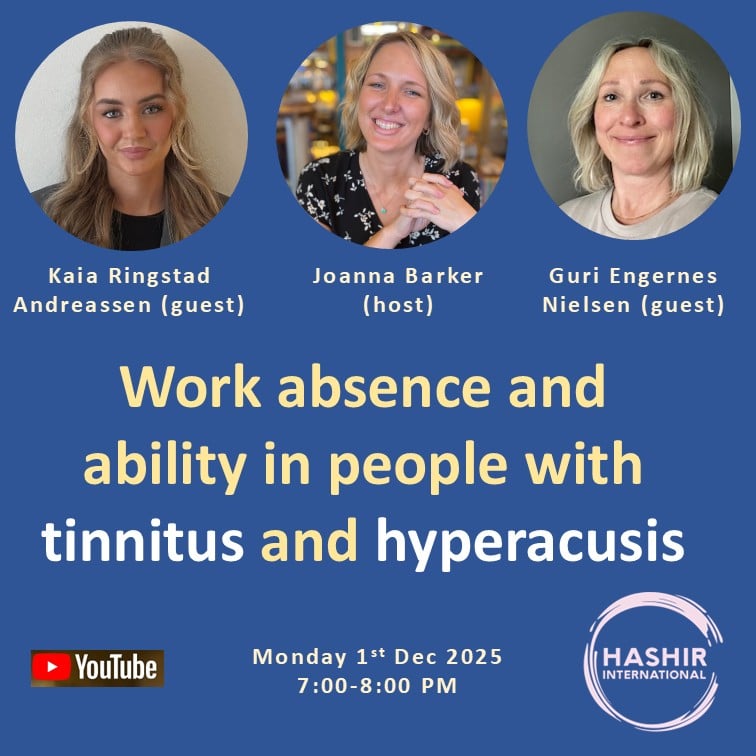
“Tinnitus, Hyperacusis and Work: What the Research Tells Us”🗓 Monday 1st December 2025🕖 7:00–8:00 PM (UK Time)🎙 Presented by Kaia Ringstad Andreassen and Guri Engernes Nielsen🎤 Hosted by our very own Joanna Barker We’re delighted...

Our guest speaker for this session is Professor Annick Gilles, head of the TINTRA (Tinnitus Treatment & Research Centre Antwerp) clinic for tinnitus, hyperacusis, and misophonia since 2018, and head of the Audiology Department at the...

Dr Kelly Jakubowski talks about her research on the spontaneous mental recall and repetition of music in the ‘mind’s ear’, known as involuntary musical imagery or ‘earworms’, is a frequent and ubiquitous experience in the Western world....
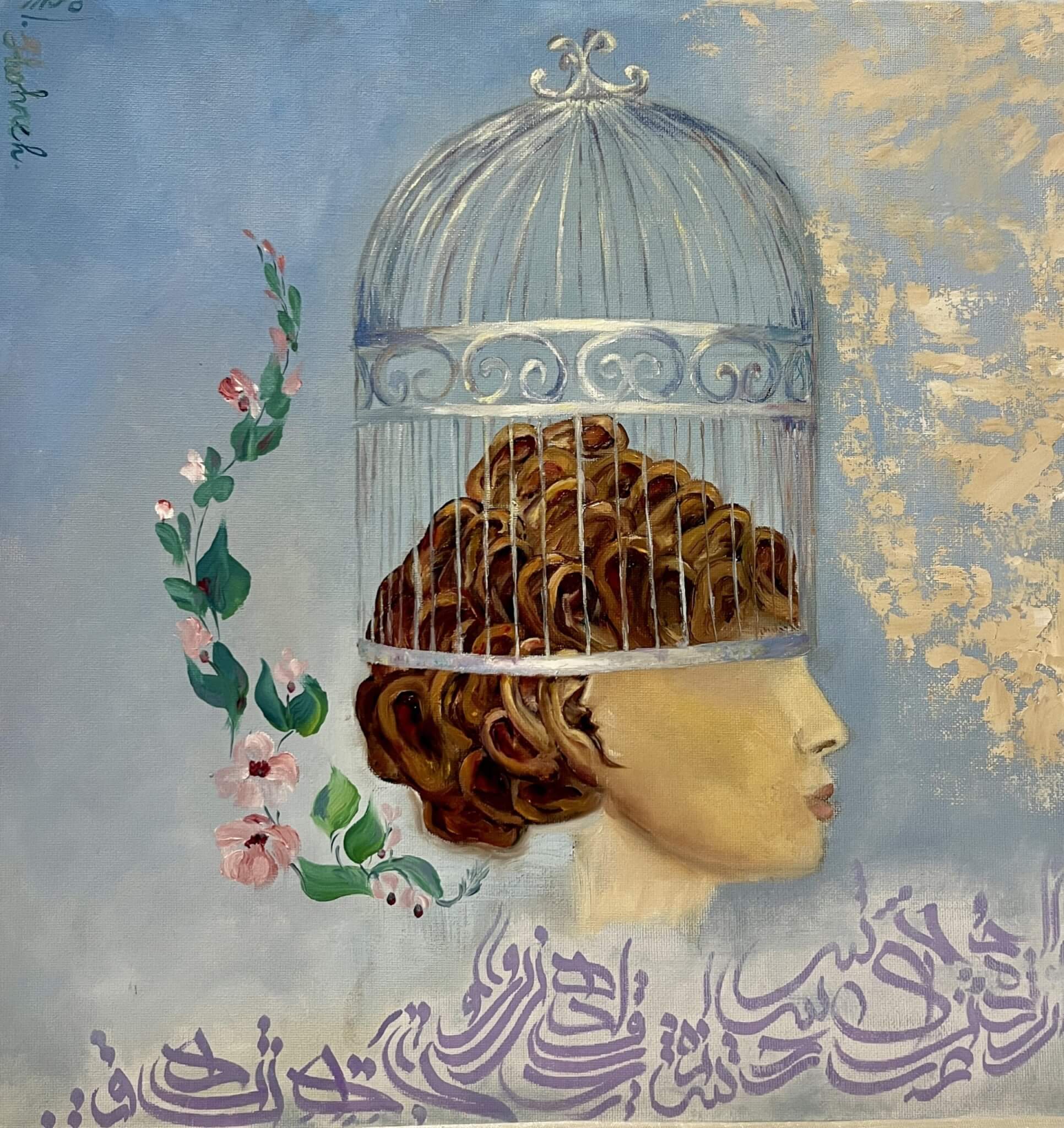
Expressing her own inner sense of how much sounds can be multiplied and intensified in her head, the 45 years old artist, Shohreh Pakdaman, illustrate in her painting a boundary between her safe zone and the intolerable which is “the edge of...

This illustration is about living with tinnitus. The 23 years old artist from the UK, Eleanor Ponté, has tinnitus. When it first came, she would freeze, in her room, alone and it would be terrifying. However, she has found immense relief and comfort...
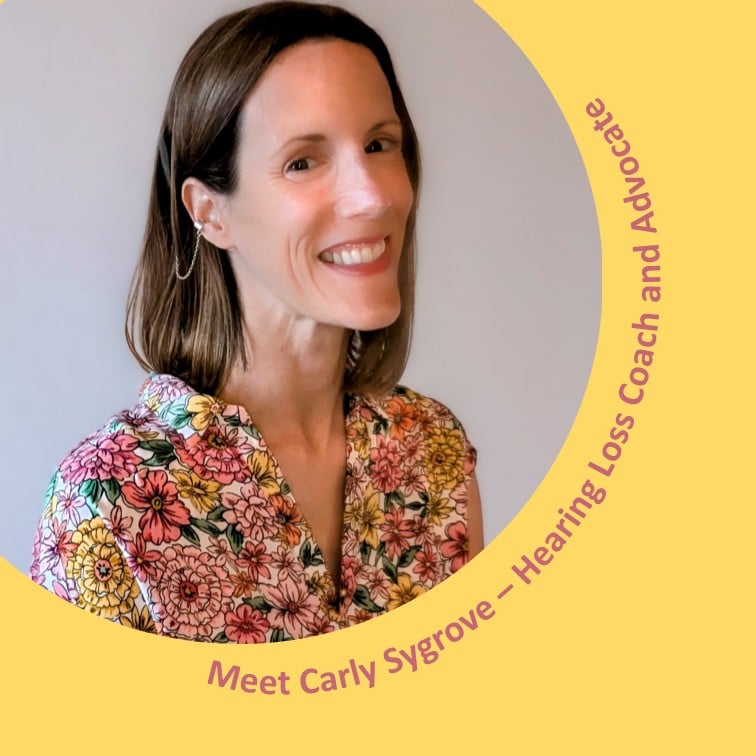
Meet Carly Sygrove – Hearing Loss Coach and Advocate Empowering people to live well with hearing loss, tinnitus, and balance conditions Carly Sygrove is a Hearing Loss Coach, hearing health advocate, and author who supports individuals navigating...

It all started in 2017/18. I was diagnosed with Lymphoma cancer. An 8 cm tumour in my chest, and a couple of infected swollen lymph nodes in my stomach. I was told that I needed to take at least 8 months off from working as a fine dining server in...

Dark Spooky House (DSH) is a thought experiment designed to help us understand how our emotions and bodily sensations can be misinterpreted by our brain leading further anxiety and tinnitus distress. We often interpret our negative emotions as alarm...
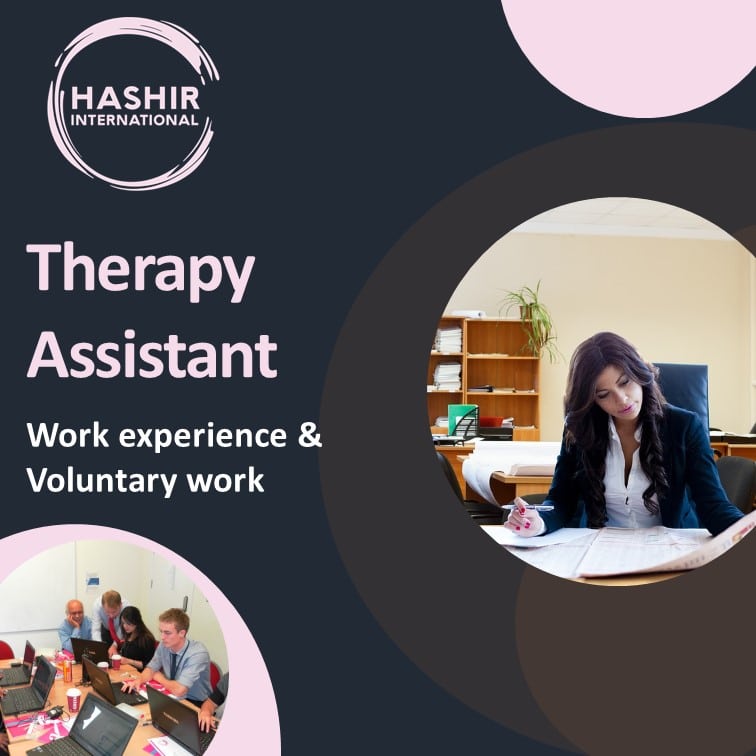
This is an exciting work experience and/or voluntary work opportunity as a Therapy Assistant within our team at Hashir International Institute. The post holder will (1) assist in assessing patient’s feedback about their therapy sessions using our...
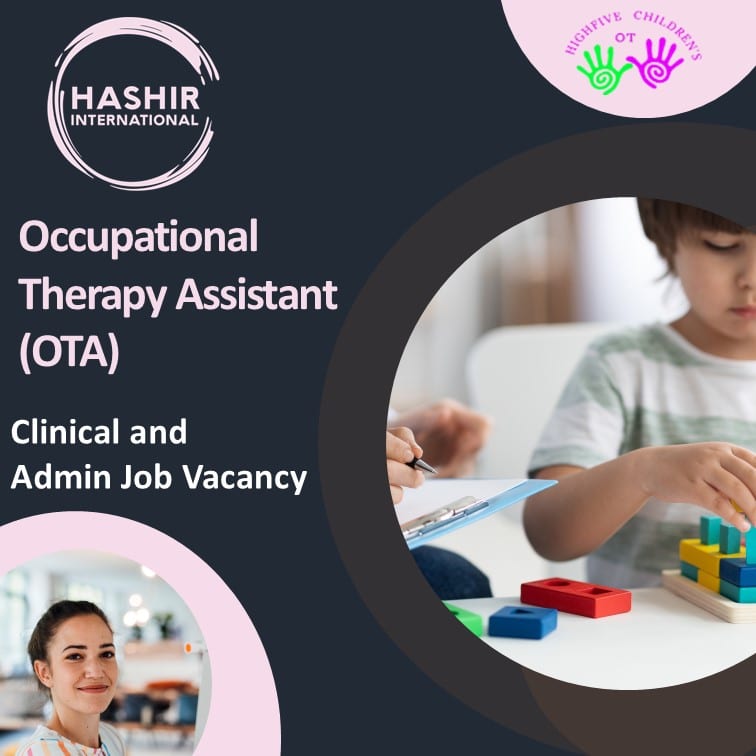
This is an exciting opportunity for a motivated band 3 Occupational Therapy Assistant (OTA) role within our team at Hashir International Institute and High Five OT. We offer full-time, part-time and “term time only” contracts. Term time contracts...
Given that Cognitive Behavioural Therapy (CBT) is considered one of the few evidence-based tinnitus treatments and given the fact that relatively few healthcare professionals are properly prepared to deliver such treatment, it is only logical that self-help approaches have been advocated. In creating a self-help guide, Dr Hashir Aazh and Professor Brian C.J. Moore combine cutting-edge knowledge of auditory science and theoretical frameworks in modern psychology with the insight they have acquired from clinical encounters about the complexities of the human experience of tinnitus and how to help people to deal with it. But that’s not all! Aazh and Moore’s unique style of writing teaches us complex concepts in an entertaining manner. The book introduces a cast of characters from Beauty and the Beast to Moby Dick, from Dante to Muhammad Ali, and from Sigmund Freud to Rumi, Buddha and Epictetus. Packed with metaphors and practical tips, the authors draw a realistic picture of what the recovery from tinnitus-related distress looks like, and then dive into the deep and explore the variety of experiences of tinnitus and their complexities.
Get the book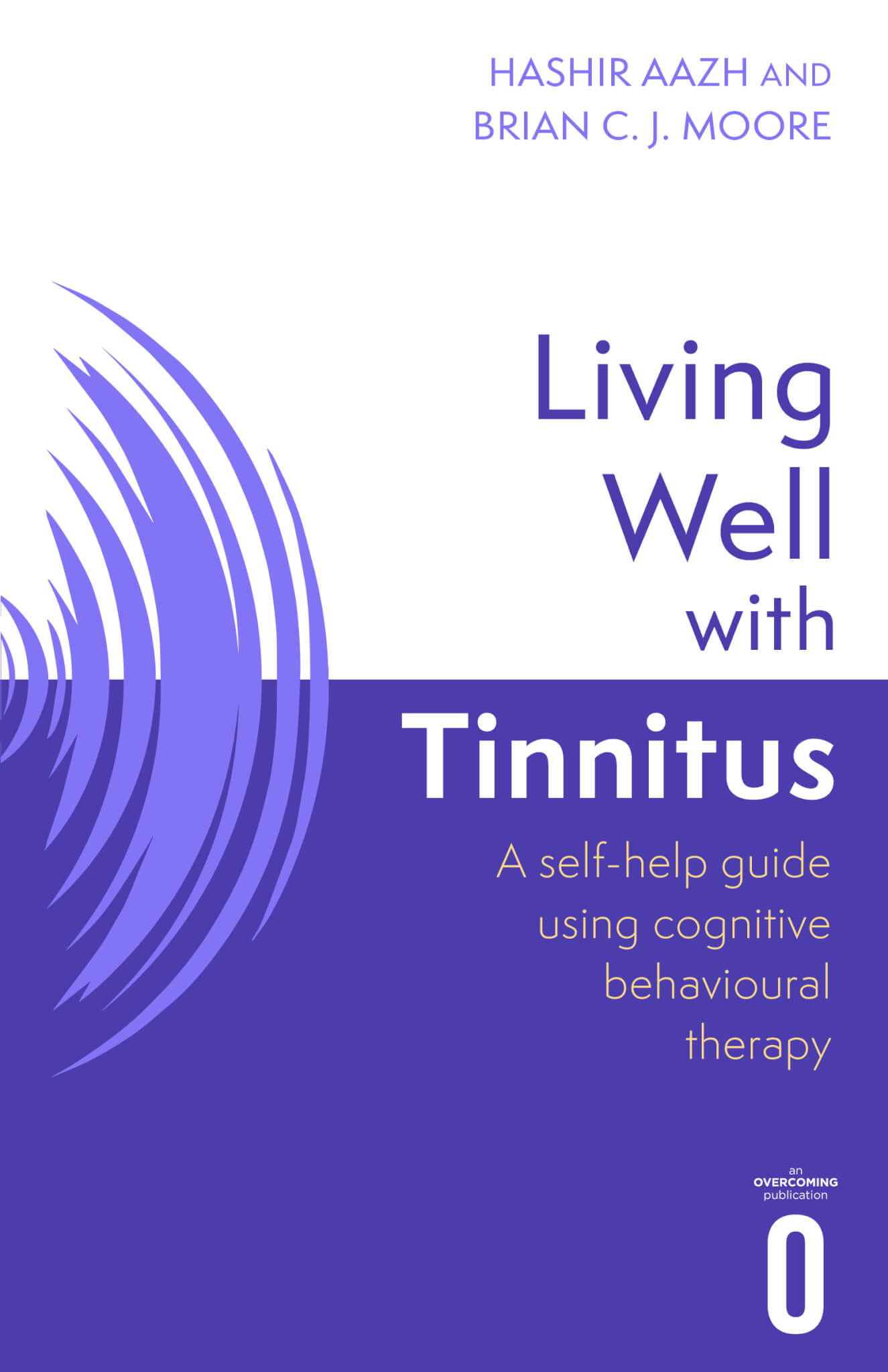
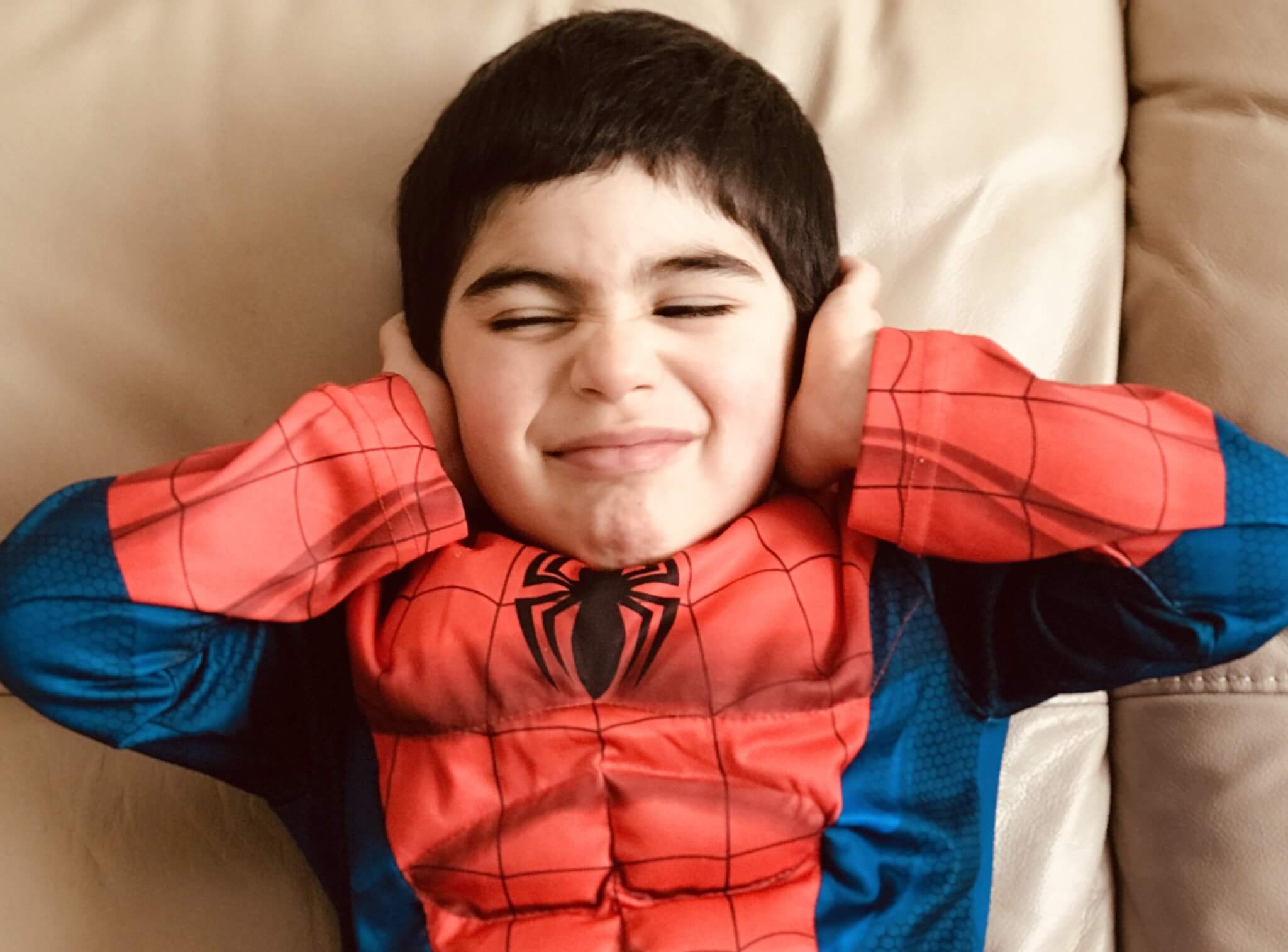
See our Senior Paediatric Occupational Therapist for hyperacusis and/or misophonia assessment and treatment in children with or without a broader sensory processing disorder, autism spectrum disorder (ASD), attention deficit hyperactivity disorder (ADHD), neurodevelopmental disorders, and/or emotional regulation difficulties.